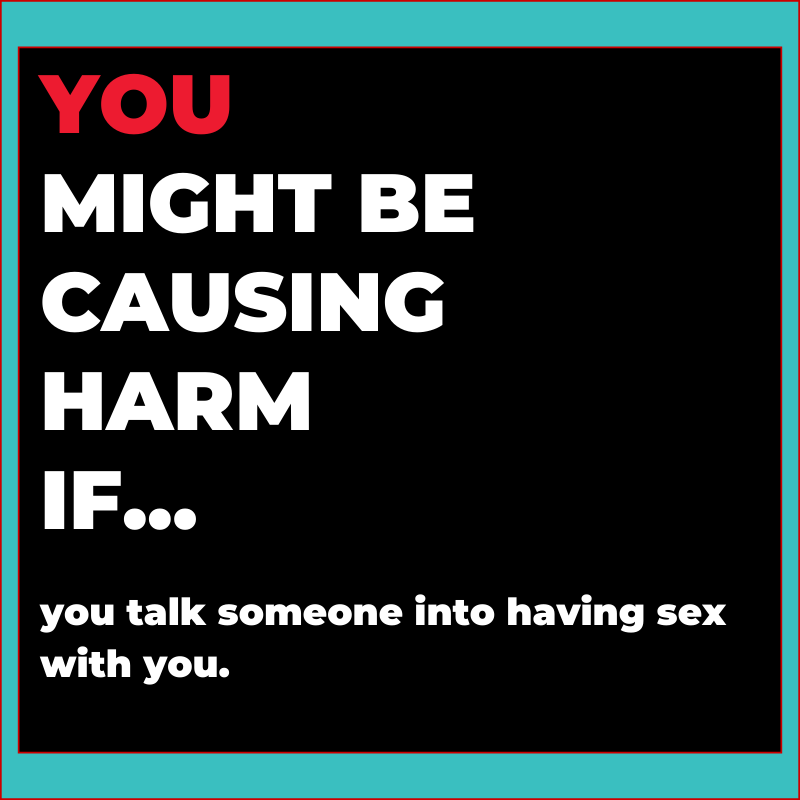
By Lauren Rives
This post is one of eight in the center’s You Might Be Causing Harm If . . . campaign.
Whenever we talk about sex, we talk about the importance of gaining consent before sleeping with someone. In doing so, we’ve made consent out to be this straightforward, end-all, be-all solution. Consent is seen like it’s a prize; if you get consent from someone, then ding-ding-ding! You’ve hit the ultimate jackpot; now you get to have sex with them. But consent isn’t actually that simple.
Sometimes, people give consent at first and then they realize that they don’t actually want to go any further. They withdraw their consent. That can really suck for the other person when they were getting into it and wanted to keep going. Someone withdrawing their consent can make us feel rejected and no one enjoys feeling rejected.
As a result, when we still really want to have sex, sometimes we try to convince our partner to keep going and say yes even if they no longer want to. We talk them into it to get consent back by any means necessary because consent – any consent at all – is seen as a one-way ticket to sex.
But pressuring and saying things like “Don’t you love me?” or “You can’t just stop after kissing me like that” or “We’ve already gone this far” or “This isn’t that big of a deal” to convince someone to sleep with you isn’t getting their legitimate consent. This is a form of coercion – using manipulation, persuasion or even force to get someone to have sex with you when they genuinely don’t want to. Coercion causes harm to the person you’re attempting to be with.
If someone says no at any point, to anything, in any way, during sex, they’ve withdrawn their consent. Trying to talk them into it doesn’t change that.
Note: Learn more about the You Might Be Causing Harm If . . . campaign and other topics covered at this link.
 Lauren Rives (she/her/hers) is double majoring in psychology and gender studies, with interest in studying intersectionality, the impacts of the carceral justice system and gender development. She is a student staff member at the McCluskey Center for Violence Prevention.
Lauren Rives (she/her/hers) is double majoring in psychology and gender studies, with interest in studying intersectionality, the impacts of the carceral justice system and gender development. She is a student staff member at the McCluskey Center for Violence Prevention.
